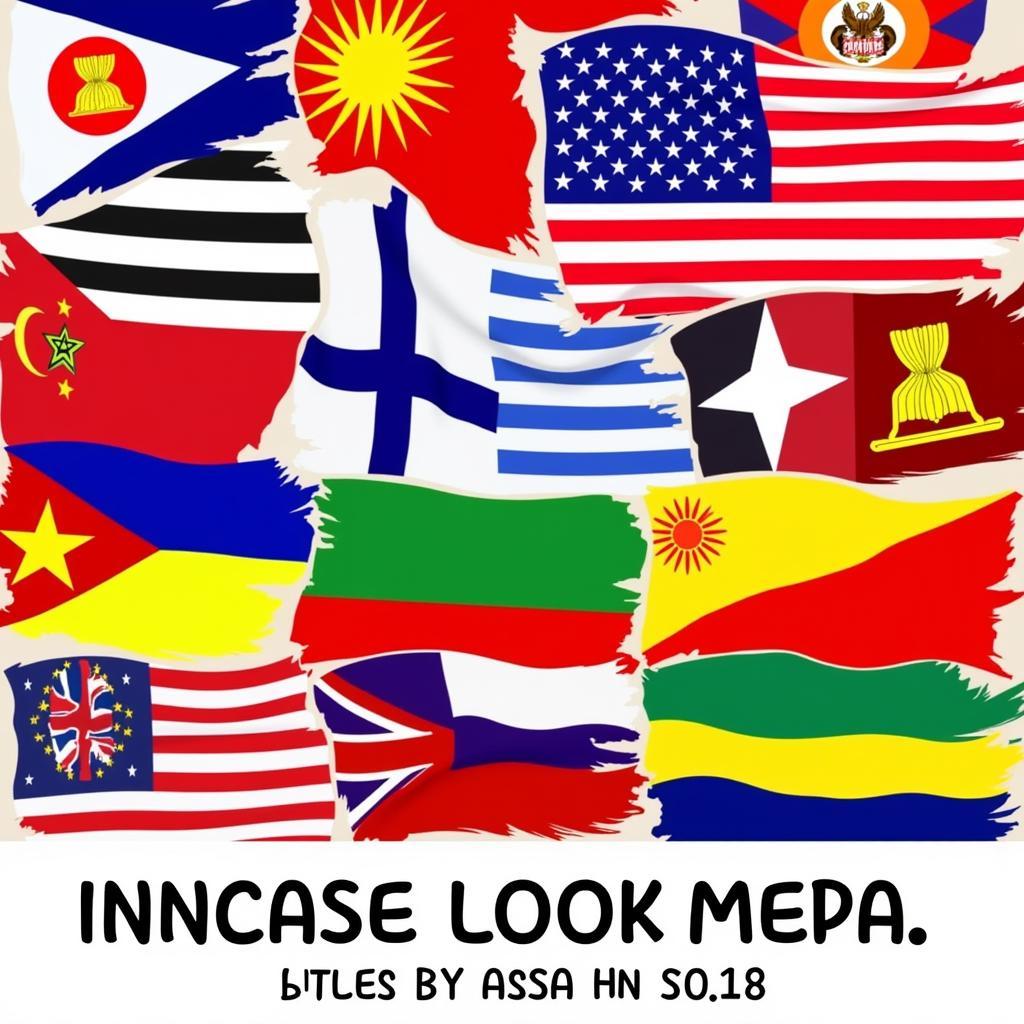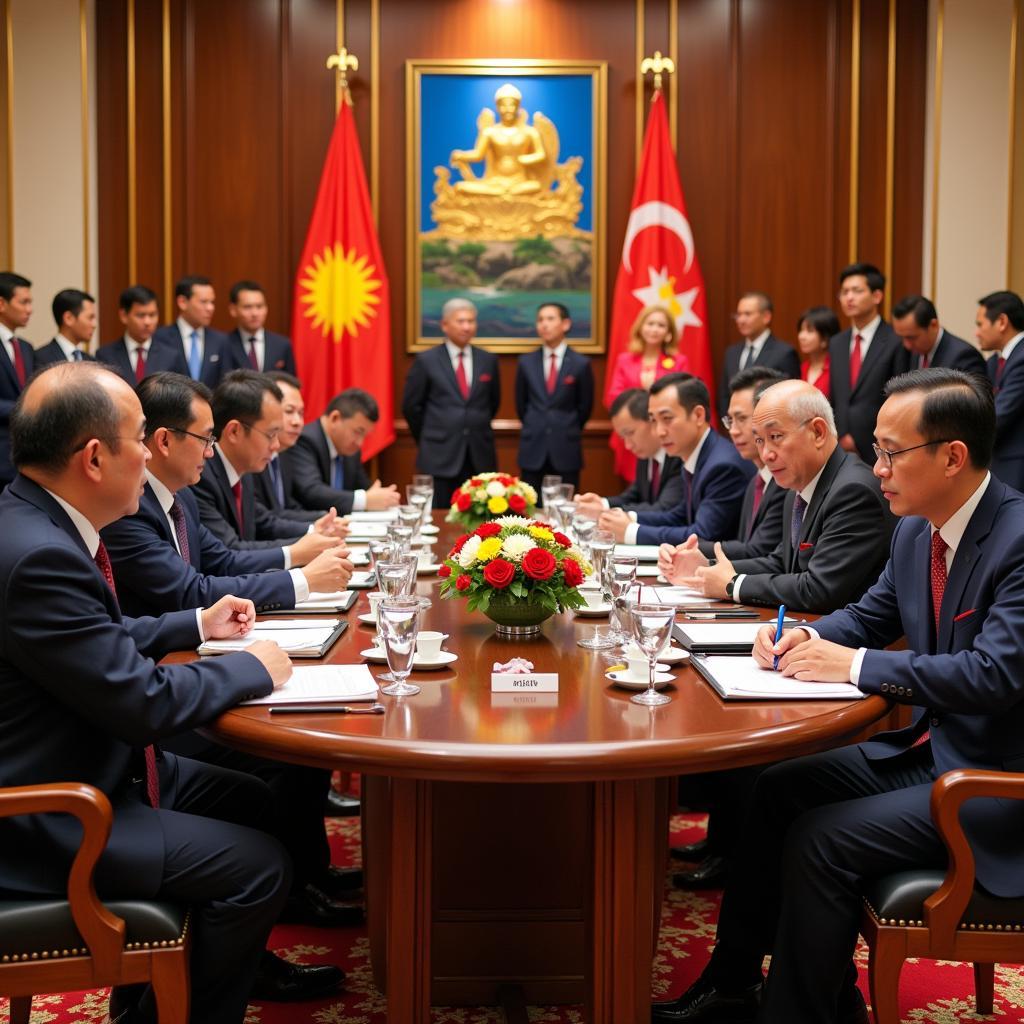The phrase “Anggota Negara ASEAN” translates to “ASEAN Member States” in Indonesian, a language spoken by a significant portion of the Southeast Asian population. But who are these nations, and what binds them together under the ASEAN banner? This article delves into the heart of ASEAN, exploring its member states, their shared history, and their aspirations for a brighter future.
A Tapestry of Cultures: Unveiling the 10 ASEAN Member States
ASEAN, the Association of Southeast Asian Nations, comprises ten vibrant nations, each contributing a unique thread to the rich tapestry of Southeast Asian culture and heritage:
- Brunei Darussalam: Known for its opulent Islamic heritage and vast oil reserves.
- Cambodia: Home to the majestic Angkor Wat and a resilient spirit that overcame past conflicts.
- Indonesia: The world’s largest archipelago, boasting unparalleled biodiversity and a diverse cultural mosaic.
- Laos: A landlocked nation characterized by its tranquil landscapes and ancient Buddhist traditions.
- Malaysia: A melting pot of Malay, Chinese, and Indian influences, renowned for its bustling cities and idyllic islands.
- Myanmar: A nation undergoing transformation, rich in history and cultural heritage.
- The Philippines: Known for its warm hospitality, stunning beaches, and unique blend of Asian and Hispanic cultures.
- Singapore: A dynamic city-state and a global hub for finance, technology, and innovation.
- Thailand: The “Land of Smiles,” famous for its ornate temples, vibrant street life, and delectable cuisine.
- Vietnam: A nation with a rich history of resilience, known for its stunning natural beauty and delicious cuisine.
 Flags of ASEAN member states
Flags of ASEAN member states
A Shared Vision for Peace and Prosperity: The Genesis of ASEAN
The formation of ASEAN in 1967 marked a turning point in Southeast Asian history. Born out of a desire to foster peace and cooperation in a region marked by post-colonial struggles and the looming threat of the Cold War, ASEAN has evolved into a significant force for regional integration.
Pillars of Progress: The Three Pillars of the ASEAN Community
The ASEAN Community, established in 2015, rests on three fundamental pillars:
- ASEAN Political-Security Community: Promotes peace, stability, and cooperation on political and security issues.
- ASEAN Economic Community: Aims to create a single market and production base, fostering economic integration and competitiveness.
- ASEAN Socio-Cultural Community: Strives to enhance social development, promote cultural exchange, and improve the well-being of people in the region.
ASEAN in the 21st Century: Navigating Global Challenges Together
In an era defined by globalization, technological advancements, and emerging challenges such as climate change and pandemics, ASEAN plays a crucial role in amplifying the voice of Southeast Asia on the global stage.
 ASEAN leaders at a summit
ASEAN leaders at a summit
Embracing Diversity, Forging Unity: The Enduring Spirit of ASEAN
The true strength of ASEAN lies in its ability to embrace diversity as a source of strength. Despite differences in history, culture, and levels of development, the “Anggota Negara ASEAN” stand united in their pursuit of shared goals, working collaboratively to build a more peaceful, prosperous, and interconnected Southeast Asia for generations to come.
Frequently Asked Questions about ASEAN Member States
1. What is the newest member state of ASEAN?
Myanmar joined ASEAN on 23 July 1997, becoming the tenth member state.
2. What is the official language of ASEAN?
English is the official working language of ASEAN.
3. How does ASEAN promote economic cooperation?
ASEAN promotes economic cooperation through initiatives like the ASEAN Free Trade Area (AFTA) and the ASEAN Economic Community Blueprint.
4. What is ASEAN’s role in addressing climate change?
ASEAN has adopted several agreements and action plans to address climate change, promoting sustainable development and environmental protection.
5. How can I learn more about ASEAN and its initiatives?
You can visit the official website of the ASEAN Secretariat and explore its vast resources on ASEAN’s history, structure, and ongoing projects.
Need More Information on ASEAN?
For any inquiries or assistance regarding ASEAN and its member states, please contact us at:
Phone Number: +84 369020373
Email: aseanmediadirectory@gmail.com
Address: Ngoc Lien Village, Hiep Hoa, Bac Giang, Vietnam
Our dedicated customer support team is available 24/7 to assist you.

